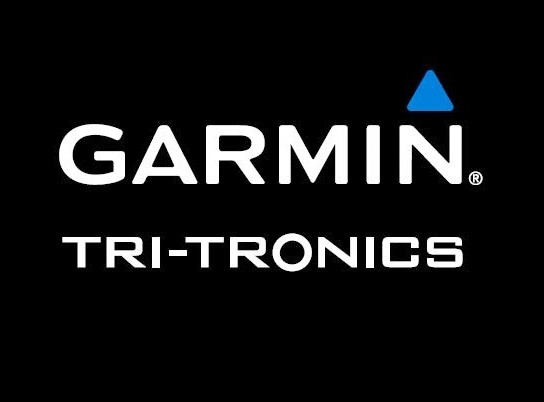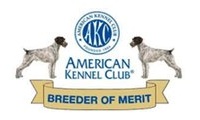Breeding Philosophy
Excellent health, temperament and hunting ability are the essence of our German Wirehaired Pointers, and our primary considerations. We believe that these three essential qualities, bred carefully and with the consideration they truly deserve, also make the GWP an exceptional household pet that excels in any job given to them. Conformation, intelligence, work ethic and other attributes that complement our primary aims are equally important to our breeding program. We will not sell puppies to homes that want a “show dog” only. Though our dogs do well in the show venue, this is a hunting breed and we expect they get to do just that.
Health Considerations
The GWP in the United States today is plagued with various health issues, and we feel that testing our breeding dogs’ health is important to produce healthy puppies that will live long and function into old age as a hunting partner and pet. Our dogs are hip and elbow x-rayed and submitted to OFA for evaluation. We also run full thyroid panels, heart echos, and CERF eye test our dogs. We pedigree research in order to take extra precautions to avoid the multitude of inherited diseases and conditions, such as epilepsy, and take care to avoid producing and propagating genetic disorders into the gene pool.
Temperament Considerations
Quality of mind is very important as is a certain level of “toughness” (never aggression) and resiliency. GWP’s with the correct temperament are easily trainable for any job and also makes them exceptional pets and house dogs. Our dogs compete in the numerous hunting venues, conformation shows, obedience, as well as agility, and rally.
Hunting Ability
Our dogs are working hunting dogs, but they also compete in various venues such as conformation dog shows, field trials, hunt tests and NAVHDA testing to help us assess our breeding stock. We do not, however, discount the differences in competitive events and real hunting, and most of all, we hope to produce dogs that will serve as hunting companions. Exceptional drive, good nose, strong pointing and retrieving instincts, water love, willingness to please and intelligence are all characteristics we value in our dogs.
Conformation Considerations
We breed to the GWP standard, “The functional wiry coat is the breed’s most distinctive feature. A dog must have a correct coat to be of correct type.” Balanced and moderate type is strongly preferred, and extremes are avoided. “The German Wirehaired Pointer is a versatile hunter built for agility and endurance in the field. Correct size and balance are essential to high performance.”
HOW WE RAISE OUR PUPS
Before we decide to breed, we critically assess our bitch, taking into account her good features and areas we’d like to see improvement, and we search around the country and even around the world to find a stud dog that will compliment and improve upon her. In addition to above standard health testing, we also assess health history and temperament, working ability, conformation and pedigree. Prior to breeding a bitch, she is completely vetted by a reproductive specialist. After breeding, she continues to hunt and exercise. She is already fed Purina, a high quality food, so we do not make many diet changes although we do feed more frequently. We do an ultrasound a few weeks before her due date and an x-ray to determine number of puppies about 3 days before her due date.
The bitch’s temperature is monitored 3 times a day as the due date approaches. She whelps inside the house in a whelping box. The pups then get weighed daily to assure weight gain and the bitch’s temperature is also taken daily to assure there is no infection. Blankets are changed at least twice daily. On the 3rd day, tails are docked.
On the 5th day, we start the BioSensor/Super Dog Program as described by Carmen Battaglia. These are exercises developed to neurologically stimulate the puppies. It has been shown that puppies that go through this program have stronger hearts and adrenal glands, and also are more tolerant of stress and disease. The puppies are of course handled often throughout the day as well.
During the first 3 weeks, we take a lot of notes and spend time observing the litter. They are handled often and linens are changed often. Toenails are filed every few days. We continue to mildly stress the puppies after the BioSensor program is over at 16 days.
As the puppies’ eyes and ears open and they become more mobile, we try and balance stability with new experiences. We start putting them in different areas in the house for brief periods and take them outside. In addition to toys in their box, we introduce new objects daily, paying attention to different textures and shapes, objects to walk on, objects above eye-level, etc.
Crate training starts early with a doorless crate in their box which the puppies readily use. They quickly get used to being in different crates in various locations.
As they get mobile and start eliminating on their own, we attach a weaning pen to the whelping box with pine shavings in it. The puppies quickly and instinctually move away from their sleeping area to eliminate. They begin to cross over the low barrier to go into the pine shavings. The pine shavings are changed often, and the puppies stay clean.
At 4 weeks old, we invite people to come see the puppies, and by 5 weeks old, socialization starts in earnest. We make a point to have the puppies meet new/different people every single day. We make sure to expose them to all different types of people as well as children.
They also start spending more time outdoors and we set up a puppy play area. Any safe and creative “toy” can be used. The key is to get the pups exposed to as many new things as possible.
Bird exposure starts at around 6 weeks old. More importantly, we expose them to various new terrain, letting them explore. At 7 weeks old, they are swimming and exposed to horses. Exploring new terrain continues often as well as frequent bird exposure.
Temperament tests and conformation evaluations are done between 7-8 weeks old. Extensive discussion with various breeders in addition to our observation help us decide which pup would be best suited for which home.
HOW WE PLACE OUR PUPPIES
Before you decide that you’d like to inquire about a puppy, please be sure to research the breed. GWP’s are not suited for everyone. They mature more slowly than other continental breeds and can require a softer touch in training. They are people-oriented dogs and without this understanding, training problems and temperament issues can arise. Purchasing a puppy from us is considered a partnership of sorts between breeder and owner. We do everything we can to produce puppies that will grow into well-adjusted, happy, healthy adults. We hand this puppy off to you, the owner, to continue nurturing the pup into the adult dog of your dreams and ask for frequent updates.
Please read about our breeding philosophy so you understand what we are trying to accomplish with our breeding program. Please understand that while there are pet quality puppies in every litter, our focus is on the versatile hunting GWP, and therefore, we strongly prefer hunting homes. We WILL NOT sell a puppy to homes interested in the sole purpose of a “show dog”.
Our puppies are raised in the home. We work extensively with the puppies so that they are well-socialized and started on the basics such as crate training, potty training, exposure to birds, etc. We create an environment for the puppies to optimize socialization and stimulation. We expect that you will continue this socialization and go on to properly train and stimulate your dog.
Claddagh GWP puppies will be AKC and NAVHDA registered. Unless being shown in conformation, puppies are sold on Limited Registration which means that, if bred, their offspring will not be registerable. Limited registration will be lifted and breeding rights granted if certain criteria is met per our contract. This is done, not to control you, but to protect the puppy and our kennel name.
The first step in obtaining a Claddagh GWP is to fill out our questionnaire. This questionnaire is a very important first step as it outlines your expectations. We will request a phone or in-person interview and/or home check. We will be asking many questions of you, but please understand that the intent is not to be invasive about your life. We screen thoroughly for a mutually beneficial placement, for your sake as well as the puppy’s. Please be honest in answering questions. Telling us what you think we want to hear will end up with a disappointing placement, creating heartbreak for all, but most of all for the puppy. We will take back any puppy from our breeding at any time for any reason, but strive for a correct placement the first time!
Once you have been approved for a puppy, we will keep you updated on any upcoming breedings. We typically only breed once every year. Before deciding on a puppy from us, we invite you to come visit our dogs and take you out hunting over them so you can decide whether or not we have what you’re looking for. Unless you are a very experienced dog person, there will be no such thing as “picks” (first pick, second pick, etc.) Puppies will be matched to appropriate homes based on your needs. We like to keep an open discourse with all our puppy people; we are here to support our puppy buyers and offer mentorship so that your puppy will be everything you hoped for in a dog.
There are many good breeders out there so if our goals are not suited to what you are looking for, we’d be happy to refer to you to another reputable breeder. Or, if there are any issues that you have questions about, regarding our puppy placement policies, that this document has not covered, please feel free to email us at courtneyvogel@hotmail.com





